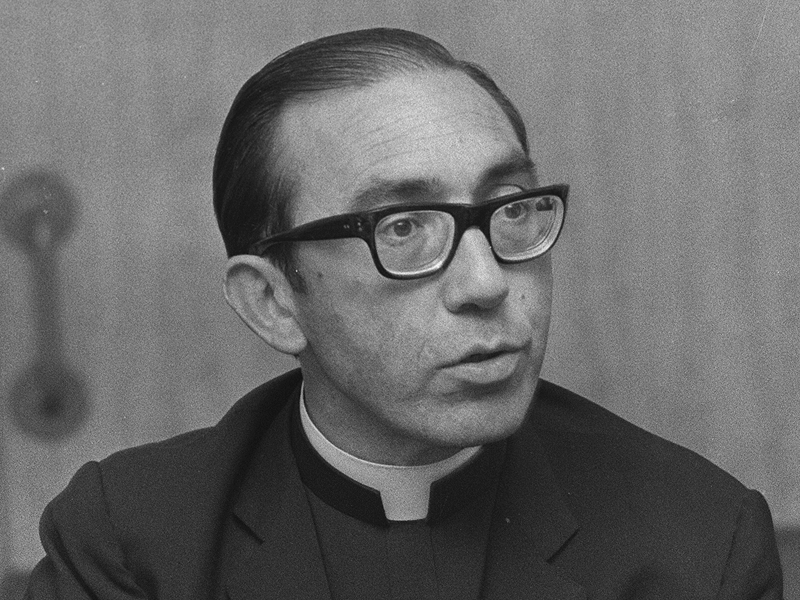History of the School
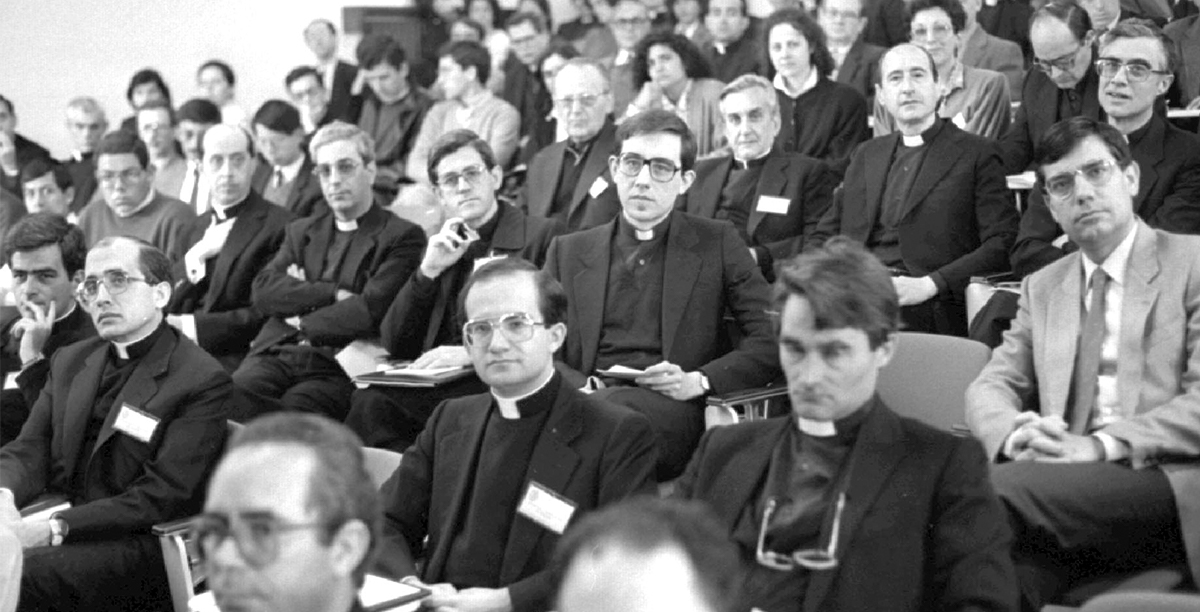
The School of Theology of the University of Navarra began its activities as a Theological Centre in 1964. It was subsequently elevated to the rank of high school in 1967 and erected by the Holy See as School in 1969. Its academic degrees have full canonical and civil validity.
As its primary task, the School is dedicated to providing its students with a solid theological training ; it also aims to prepare teachers and researchers in the Sacred Sciences. Its programs of study of licentiate degree (Postgraduate/Master's Degree) is structured in two specialisations: Biblical Theology and Systematic Theology (Orientation in Dogmatic Theology and in Moral and Spiritual Theology).
Deans
Mr. José María Casciaro was appointed the first Dean of the School (1970-1980).
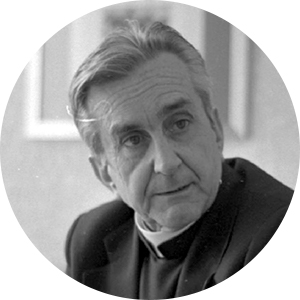
-
1967
high school Theological
On April 23, 1967, the then Chancellor, Josemaría Escrivá, established the University's Center for Ecclesiastical Sciences, integrated by the high school Theology, created three years earlier. Thus was born the future School of Theology.
Classes at the high school of Theology began on October 16, 1967, with 30 students, half lay and half priests. The classes were held in premises provided by the Cathedral Chapter of Pamplona, with entrance through the Puerta Preciosa of the Cloister.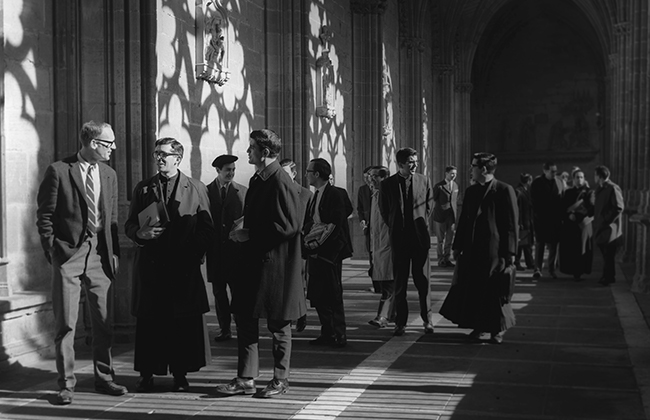
-
1968
Institute of Church History
In 1968 the teaching high school of Church History began, with José Orlandis as director, Gonzalo Redondo as Deputy Director, and Primitivo Tineo, as secretary (from 1970).
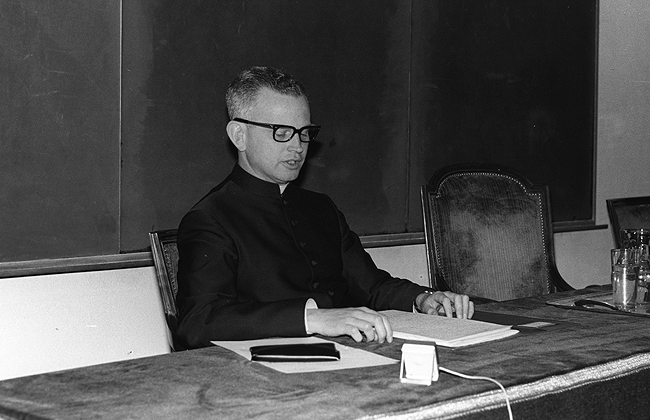
-
1969
The School of Theology
On 1 November 1969 the Congregation for Catholic Education (with the express approval of Paul VI) erected the School of Theology from high school.
The board Directive of the new School was constituted by: José María Casciaro, Dean; Ramón García de Haro, Associate Dean; Lucas F. Mateo Seco, director de programs of study; Amador García Bañón, secretary.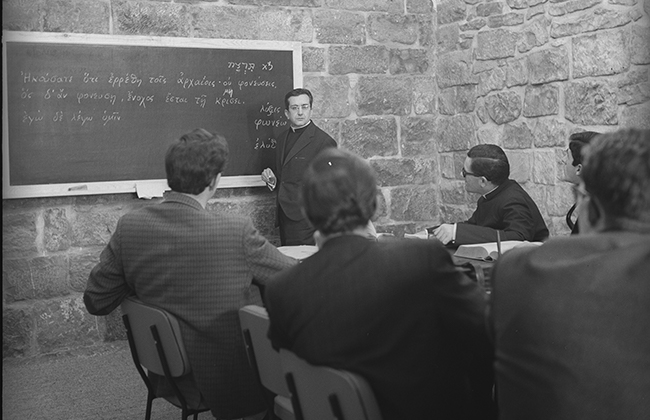
-
1969
Scripta Theologicais born
In 1969 the first volume appeared in two issues of the journal Scripta Theologica. Its first director was Alfredo García Suárez, and José Morales, the first secretary. The headquarters of the journal was at campus, at Library Services of Humanities.
The image corresponds to the presentation before the media of the launching of the journal.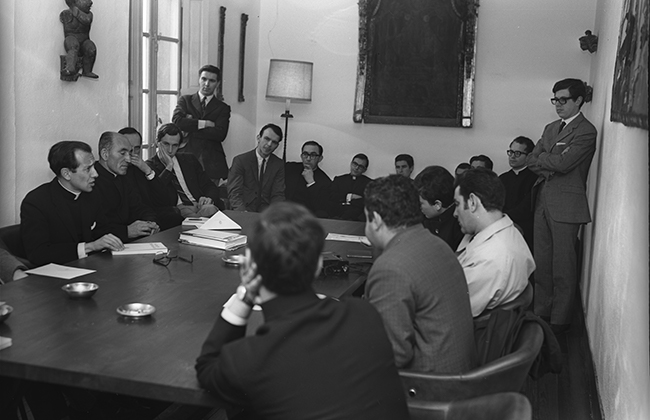
-
1969
First women
In the 1969/70 academic year, the first students enrolled, all of them already in possession of a higher university degree degree scroll : Mercedes Otero (in the picture), Isabel María Sánchez and María de la Capilla Caracuel, who graduated in Theology in 1971. The first two received their doctorates in 1973.
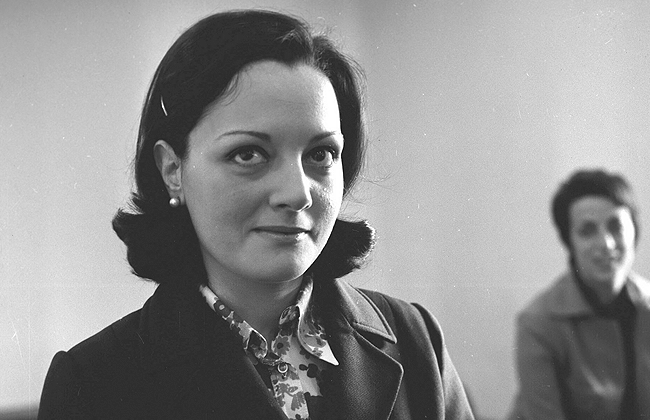
-
1976
New headquarters
In 1976, the School had to leave the facilities in the cloister of the metropolitan cathedral, which had become too small for the growing number of students, issue . During the 1975-1976 academic year, work began on the construction of a new building at the university campus at that time.
The 1976-1977 academic year began in the new building designed by the architect Joan Rius, which became a reality thanks to the generous financing of the Aristrain Foundation.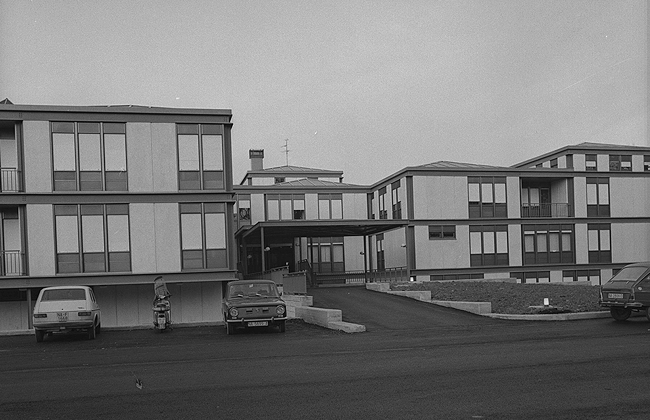
-
1979
1st International Theology Symposium
The first International Theology Symposium of the University of Navarra was held in Pamplona from 18 to 20 April under the slogan "Ethics and Theology in the face of the contemporary crisis". The symposium, of an interdisciplinary nature, was attended as speakers by Spanish, Belgian, Italian and German theologians, philosophers and jurists.
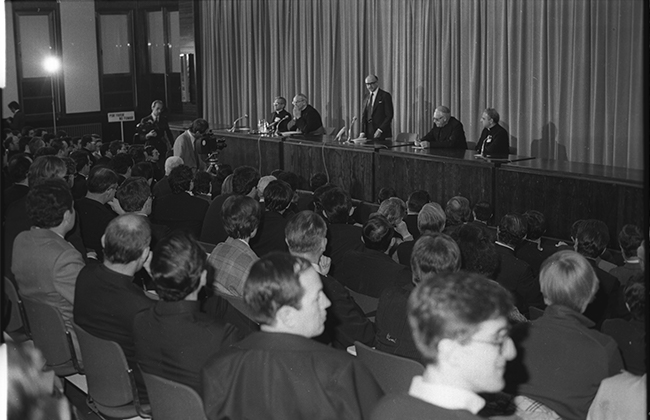
-
1981
Undergraduate degree program
In 1981, the institutional first cycle of the School of Theology (Degree) begins. Up to that time, only licentiate degree (Master's) courses were offered.
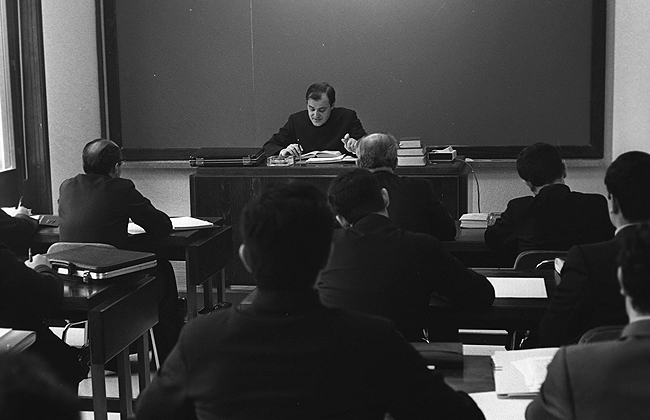
-
1985
Roman section
In 1985 the Roman section of the School of Theology began and lasted until 1990, when it was disbanded (with the exception of the School of Canon Law) with the establishment of the Ateneo Romano de la Santa Croce.
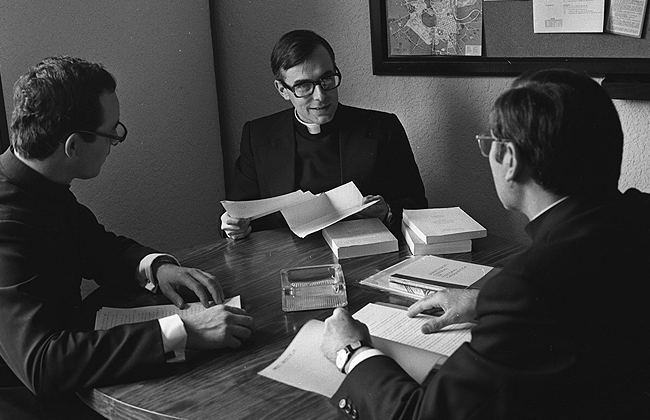
-
1990
A catechism for the Pope
group On 20 June 1990, a group of researchers from the University's School of Theology, led by Professor Pedro Rodríguez, handed over to Pope John Paul II the critical edition of the Roman Catechism, on which they had been working since Pedro Rodríguez discovered the original manuscript at the Vatican's Library Services in 1985.
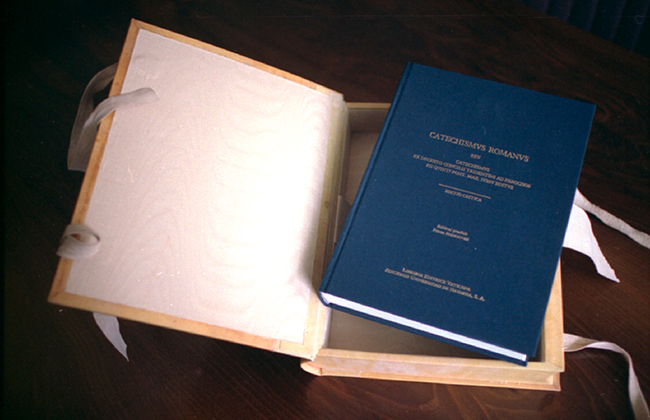
-
1992
yearbook of Church History
In 1992 the first issue of the yearbook of Church History was published, which gathers the results of original research, by national and international authors, in ecclesiastical, religious, theological and artistic history.
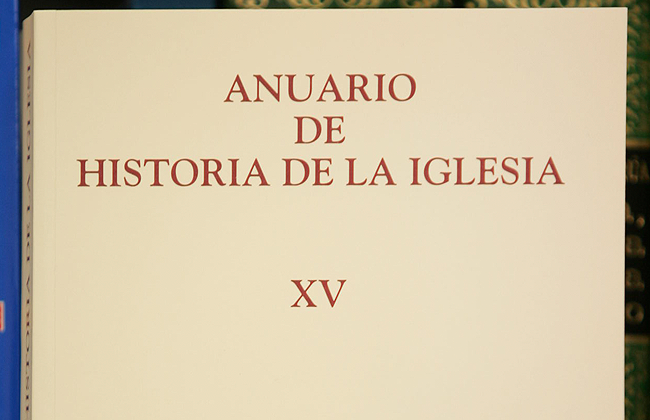
-
1994
Theology Manuals Collection
In 1994 the School began publishing the Collection of Theology Manuals.
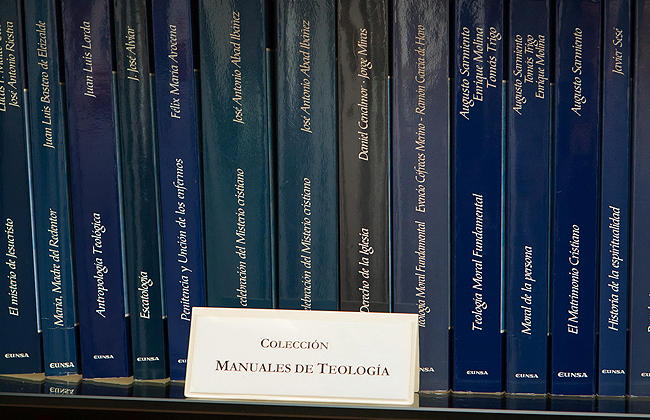
-
1997
Higher Institute of Religious Sciences (ISCR)
In 1997 the high school Superior of Religious Sciences (ISCR) was born. It grants the degrees of high school program (3 years) and graduate (2 years) and the Degree in Religious Sciences, in addition to several programs of training 'online'.
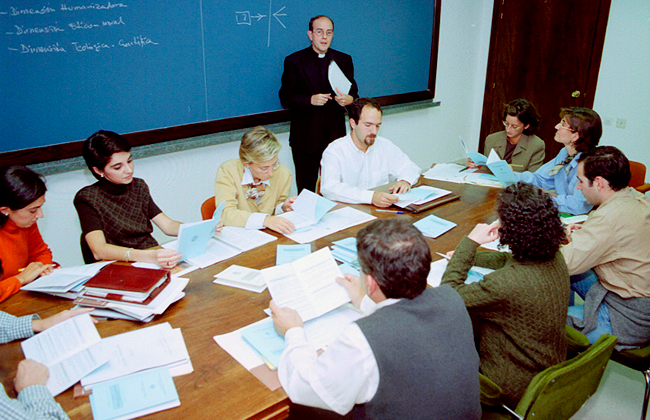
-
1998
Joseph Ratzinger, doctor honoris causa
A special moment in the history of the School was the awarding, in 1998, of the doctorate honoris causa to Joseph Ratzinger, the future Benedict XVI. The then Cardinal, Prefect of the Congregation for the Doctrine of the Faith, spent four days at campus.
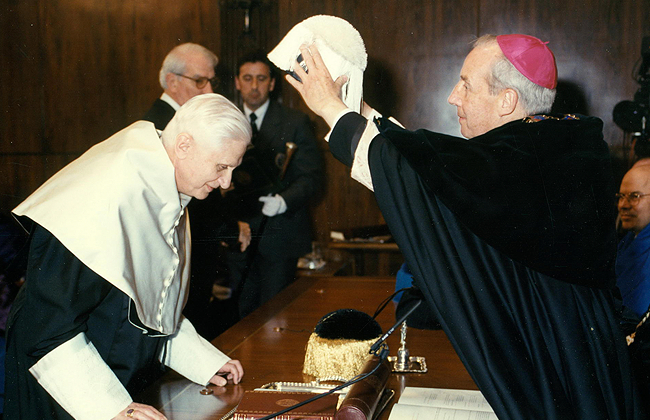
-
1999
The building grows
In 1999, a new module was added to School of Ecclesiastical Studies, when the School of Canon Law was moved there and the ecclesiastical School of Philosophy was created. The expansion, of about 1,800 m2 , provided two floors for classrooms and offices.
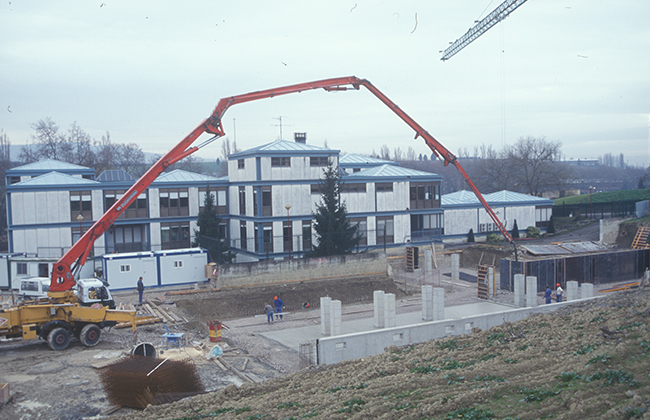
-
2004
Navarra Bible
In 2004 the publishing house EUNSA, School , completed the publication of the Holy Bible that St. Josemaría had promoted in 1972. It consists of 5 volumes and more than 6,600 pages in total. Since then, it has been translated into English, Portuguese, Italian and French.
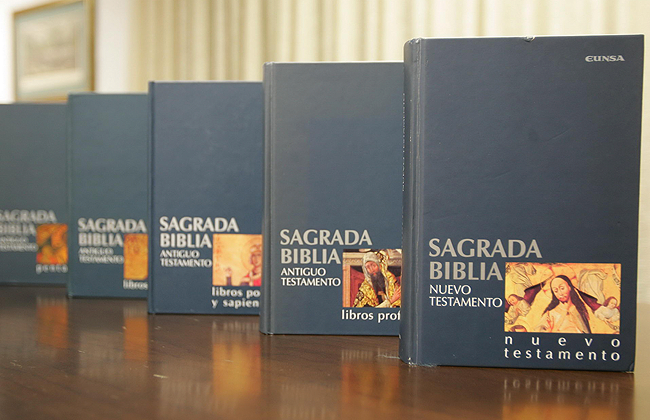
-
2008
Gold Medal to one of the pioneers of the School
In 2008, Professor Lucas F. Mateo Seco, one of the pioneers of School, received the University's Gold Medal.
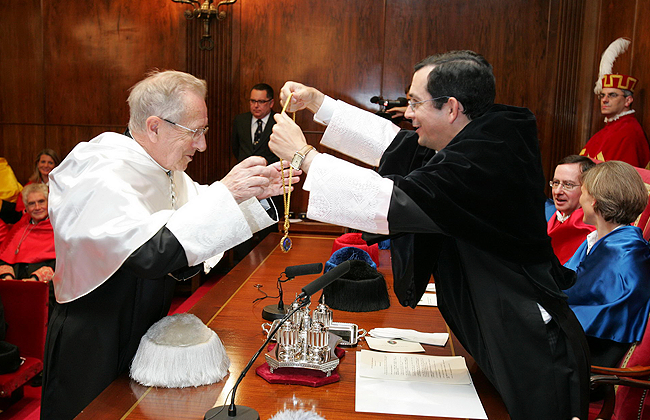
-
2016
Digital edition of the Bible
In 2016 the School converted the 5 volumes of the Holy Bible from the University of Navarra into an e-book. The digital edition, which offers for the first time a Latin American version, includes 38,700 internal links for easy navigation.
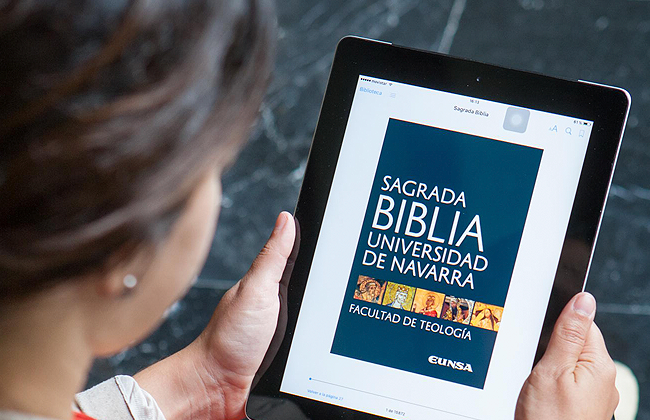
-
2017
50 years of dialogue between faith and reason
The School celebrated its half-century of history in 2017. The commemorative events, which were attended by more than 300 people, began with a Eucharist concelebrated by more than 150 priests, including fifteen bishops from six countries.
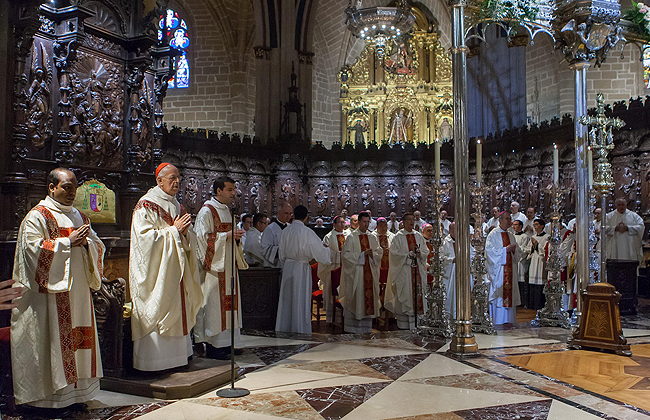
-
2019
Scripta Theologica, among the world's highest impact journals
The journal Scripta Theologica is ranked in 2019 among the highest impact journals worldwide according to Scimago Journal Rank (SJR). It ranked issue one in Spain and 107th in the world of the scientific journals of programs of study on religion.
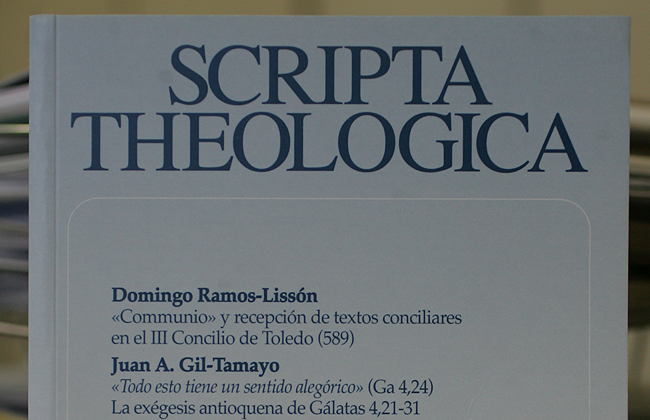
-
2023
QS Ranking
The University of Navarra is ranked 35th in the world in the QS Ranking area for 'Theology and programs of study on Religion'. It stands out for the volume and impact of its research both nationally and internationally.
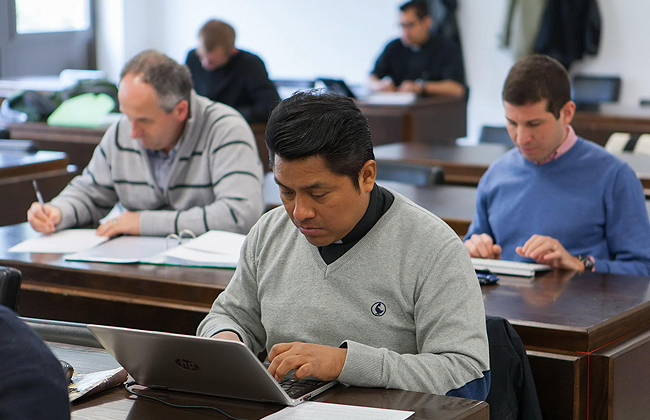
SOME OF THE PIONEERS OF THE SCHOOL
Alfredo García Suárez was the first director of the high school Teológico, the germ of the current School de Teología. Together with him, José María Casciaro (later the first Dean when the School was erected), Pedro Rodríguez and Amador García Bañón made up the board of the high school in 1967.
Other pioneers of the School are Lucas F. Mateo Seco, José Morales, Ramón García de Haro, Ildefonso Adeva or Aurelio Fernández.
* Click on the image to learn more about the pioneers of the School
Alfredo García Suárez
Alfredo García Suárez was the first director of the high school Teológico, germ of the current School de Teología, between 1967 and 1969. He was also the first director of the journal 'Scripta Theologica', until 1971.
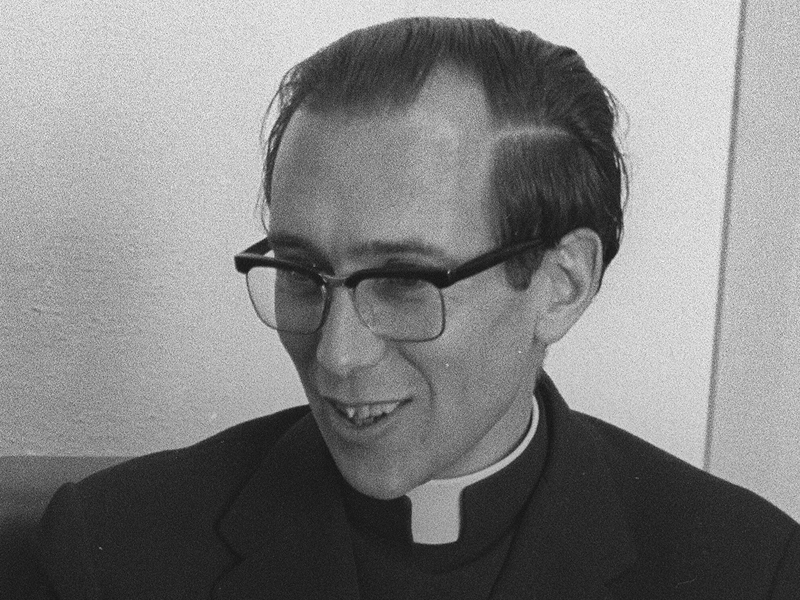
José María Casciaro
José María Casciaro became the first Dean, when the high school was erected at School in 1969. He remained so until 1980. A native of Murcia, he had studied Philosophy and Letters at the Complutense University of Madrid, where he had also doctorate in the Section of Philology Semitics. Ordained a priest, he obtained the licentiate degree in Sacred Scripture at the Pontifical Biblical high school in Rome.
He promoted the edition of the "Biblia de Navarra".
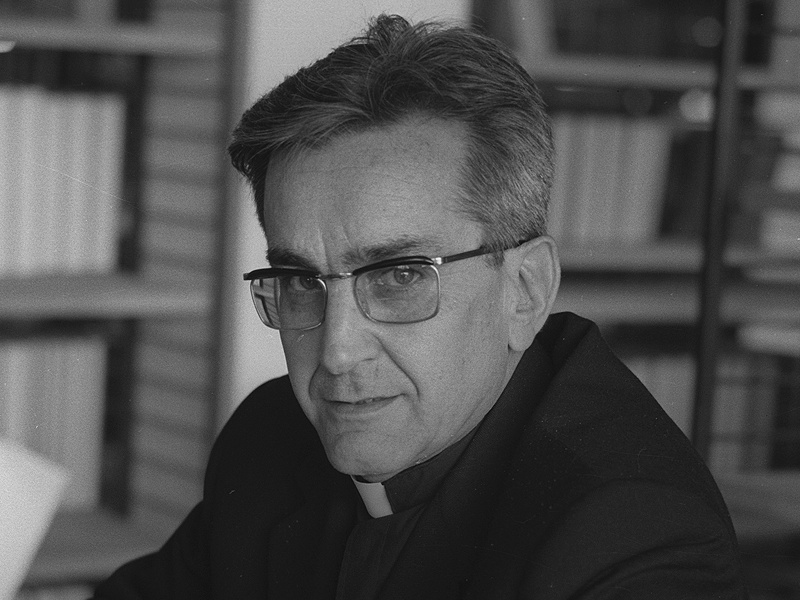
Pedro Rodríguez
Pedro Rodríguez was ordained a priest in 1958. In Rome he completed the programs of study of licentiate degree and doctorate in Sacred Theology at the Pontifical Lateran University. He was director of programs of study and then director of research.
Between 1992 and 1998 he was Dean of the School.
Author of numerous books, in 1985 he discovered the original manuscripts of the Roman Catechism, the basis of the historical-critical edition produced under his direction.
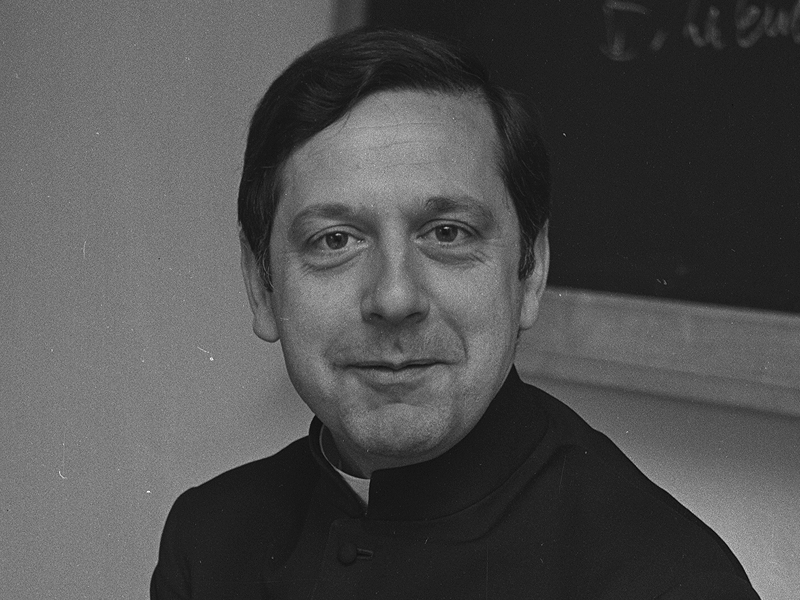
Amador García Bañón
Amador García Bañón, doctor in Law and Theology, was the first secretary of high school Teológico and professor of Fundamental Theology.
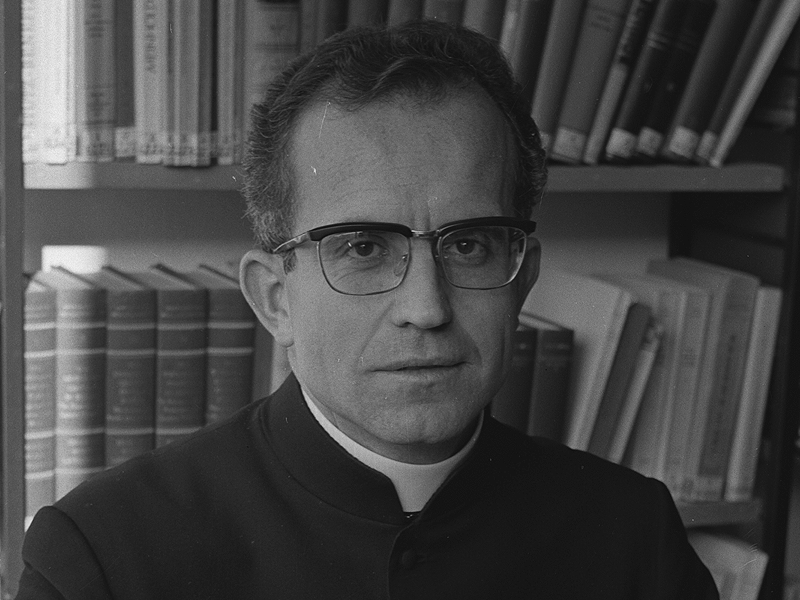
Lucas F. Mateo Seco
Lucas F. Mateo Seco is another of the teachers who started School in 1967. He was a member of board for 23 years. He dedicated himself first to patrology and eschatology, and then to dogmatic theology.
He edited the journal 'Scripta Theologica'.
In 2008 he received the Gold Medal of the University.
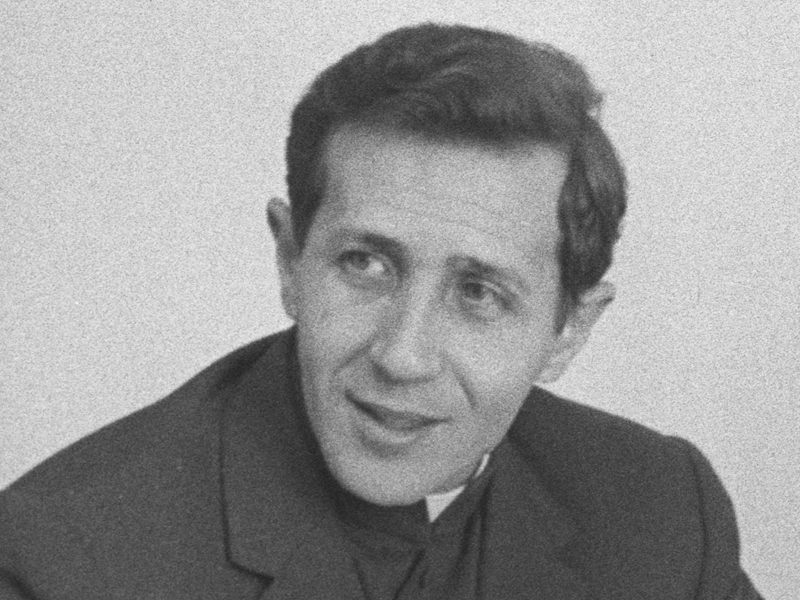
José Morales
Another of the pioneers of School was José Morales. He joined the high school Theologica in 1967. He was part of the first management team of the journal 'Scripta Theologica' and was director of department of Fundamental and Dogmatic Theology.
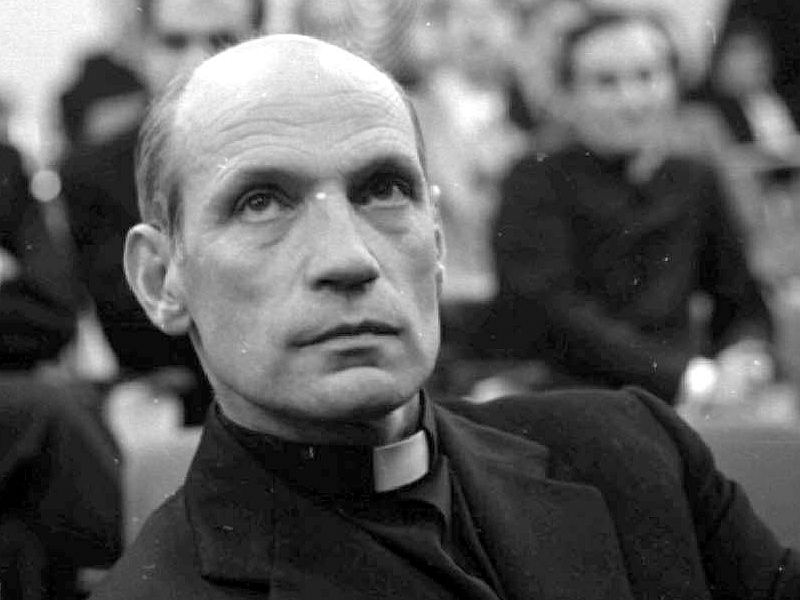
Ramón García de Haro
Ramón García de Haro joined the University as professor of Labor Law (1958 - 1964).
He returned in 1968 as professor of Moral Theology and Deputy Director of the then high school Teológico. Once the School was erected, he was appointed Associate Dean.
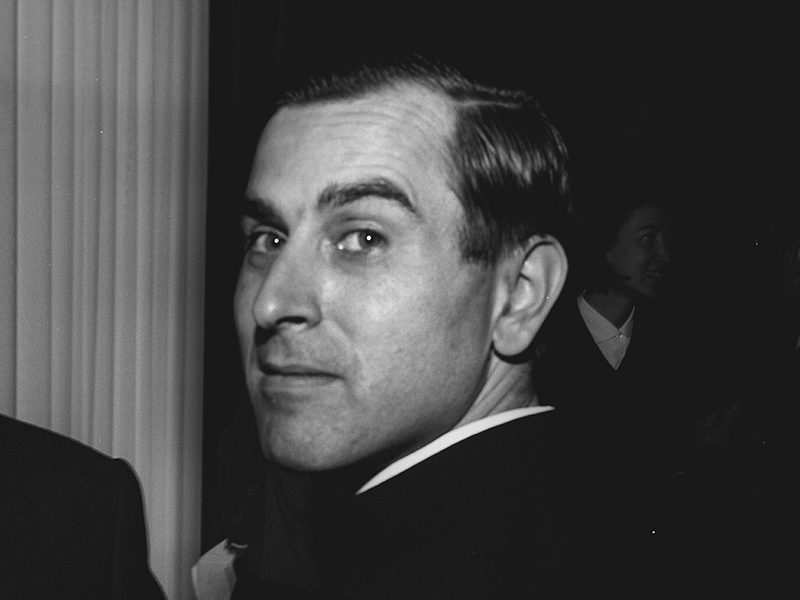
Ildefonso Adeva
Ildefonso Adeva arrived in Pamplona in 1967 to join the School as a professor in the field of Moral Theology. In 1982 he obtained the doctorate in Theology at the University.
He was canon penitentiary of the Cathedral of Pamplona since 1970.
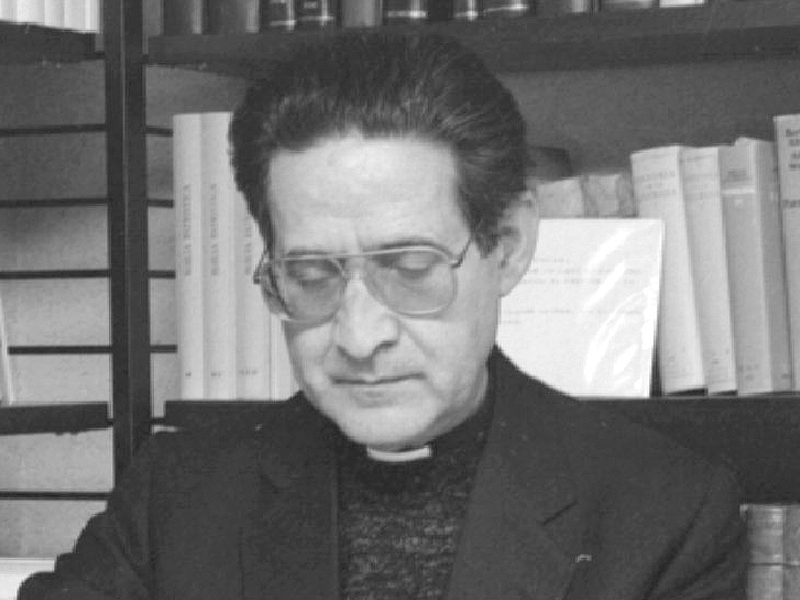
Aurelio Fernández
Aurelio Fernandez also joined School in 1967. He taught pastoral theology until 1972.
He had doctorate in Philosophy at the Pontifical University of Salamanca, and in Theology at the University of Fribourg.
